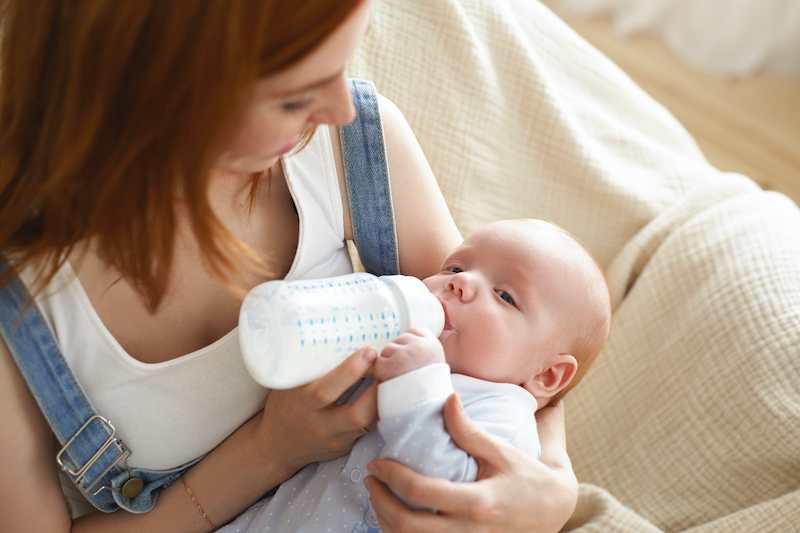As parents, you have to be careful about maintaining a feeding schedule for your baby as per his age and need. A newborn’s stomach is so small in the beginning that it can hold only 1 – 1.5 teaspoons of liquid at a time. The stomach grows and stretches as the baby gets older. Because babies grow so fast, it’s difficult to understand how much feeding they need. Though if you are bottle feeding, it’s easier to measure.
If you have a newborn baby, here is some help.
Feeding schedule for breastfed newborns
It is recommended to breastfeed a newborn at least 8 -12 times a day during the first week. Do not let your baby go without feeding for more than 4 hours at a time. As the baby grows, the milk supply increases too and thus the baby can consume more milk in less time in each feeding. This is when you can make a pattern.
Although different babies have different feeding patterns. For the majority, children between 1 to 3 months feed 7 to 9 times per day, children between 3 to 6 months feed 6 -8 times per day and after 6 months the baby feeds around 6 times per day. Breastfeeding can be reduced to four times per day as the child reaches 12 months as the introduction of semi-solids helps in meeting the baby’s extra nutritional needs.
Feeding schedule for bottle-fed newborns
Bottle-fed babies feed around every 2-3 hours in a day and post two months the time gap can increase to 3-4 hours between per feeding. Between 4 to 6 months the child feeds around 4-5 hours every day and post 6 months, every 4-5 hours is suggested.
What newborns should not be fed?
Babies under a year should not be given liquids other than formula milk. No water, juice or cow milk should be given. These do not provide appropriate nutrition and can upset your baby’s stomach. Water should be introduced around 6 months.
Cereal should not be added to the bottle, it can lead to a choking hazard. A baby’s digestive system cannot handle cereals until 4 -6 months.
How to know if your child is hungry?
Timely scheduled feeding is best for babies who are born prematurely and with any medical condition. Parents can also look for hunger cues and feed the baby based on that. This is called feeding on demand or responsive feeding.
Simple clues like putting hands in the mouth, licking, opening the mouth, creating fussy can indicate that your child is hungry.
Signs of overfeeding
Overfed babies may experience stomach pain, gas, or vomiting. These kids might also be at risk of developing obesity later in life. It is advised to feed them less than what they desire so that it becomes easy for them to recognize when they are full.
![]()












